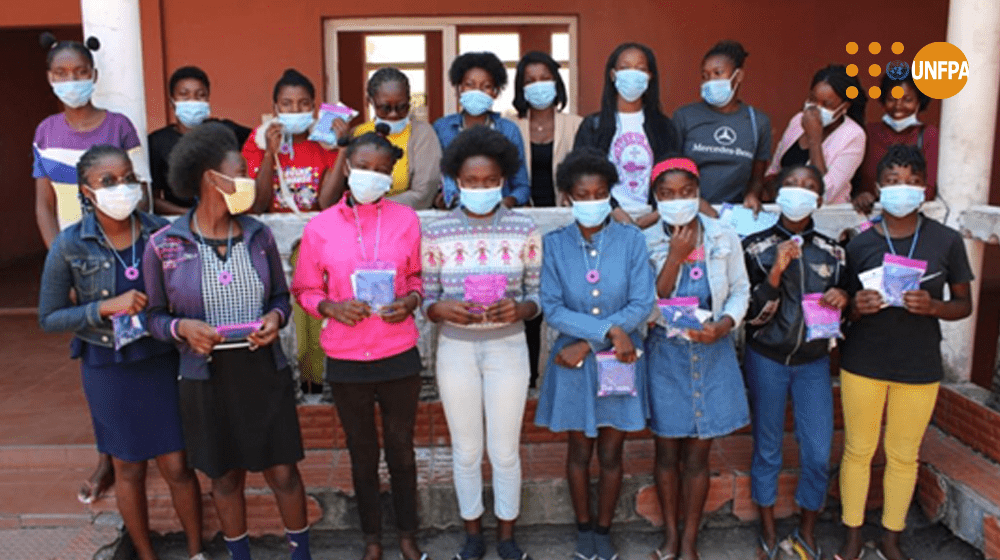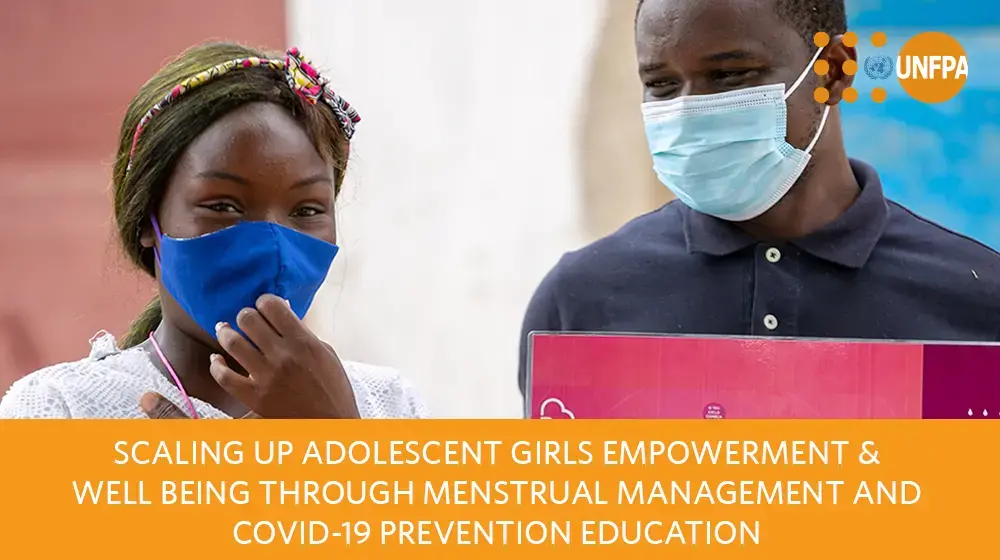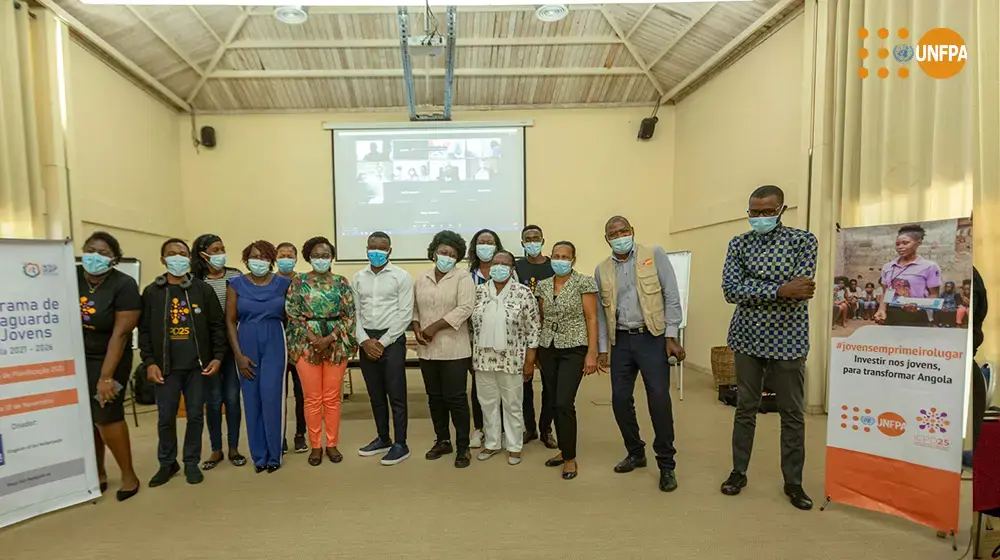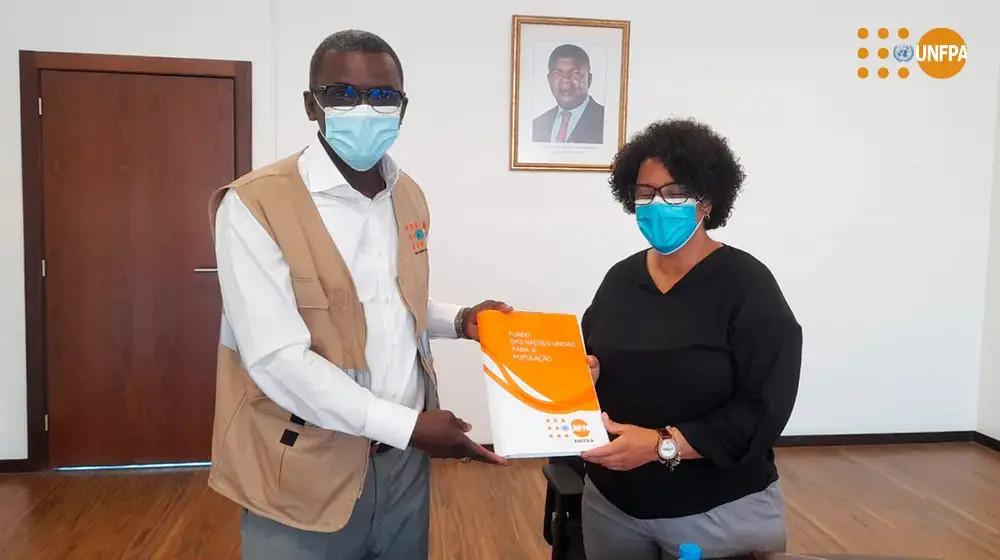Young people learn about menstrual hygiene, sexual and reproductive health
Sensitization on menstrual hygiene and sexual and reproductive health reached Lunda Sul in four more provinces in Angola. Benguela, Cuanza Sul, Moxico and Lunda Sul. In this last province on 15 and 25 September, 23 girls from Saurimo received reusable menstruation panties and menstrual watches, and more than 100 young people participated in lectures on the topic. UNFPA Angola and the local association, Mwana Pwo, organized the events.
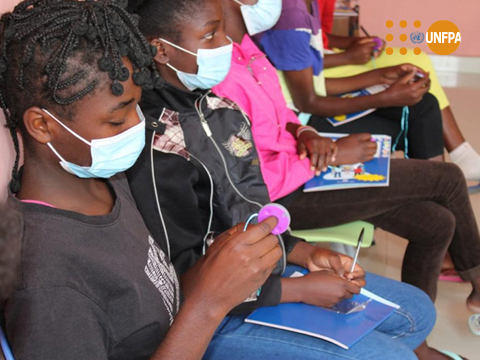
Vanuzia Paulo's happy face says it all. At 14, the seventh-grade student knows there is nothing better than having access to basic information that can change her life. “I participated in the activity on menstrual management, where I learned many things. On the 10th of this month, I started to menstruate and I was able to use the information they gave us about the use of underwear, the sanitary napkin and also the Smartwatch, which I use to control my menstruation”, she explains. Vanuzia was one of 23 girls from the Agostinho Neto and Luavur neighbourhoods, in Saurimo, who received, on 25 September, reusable panties and menstrual watches, at an event organized by UNFPA and the organization Mwana Pwo.
Angola is a mostly youth country, with 65% of the population under 25 years old. There are 10 million girls and women in the country of menstrual or reproductive age and while 75% of girls attend primary school, this proportion drops to a meagre 15.5% in secondary school, being two of the main factors for girls to drop out of school. , entry into the age considered “women” and lack of access to adequate menstrual hygiene products. For Vanuzia to feel empowered to stay in school, menstrual health training is essential to overcome social difficulties, and sometimes the difficulties created by the lack of water and the right infrastructure, those girls face when they reach menstrual age.
Ten days before the training, the Mwana Pwo facilitators who received training on Menstrual Health provided by UNFPA Angola and Be Girl Inc. under this initiative also promoted a series of lectures on sexual and reproductive health and Menstrual Health, which opened the horizons for 72 female students and 30 male students at the 1st cycle school Muatxissegue Wa-Tembo.
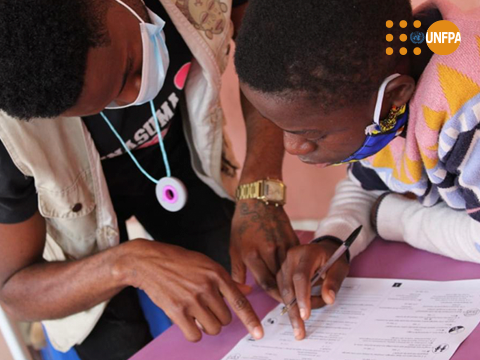
The information he received in these sessions changed Ricardo dos Santos' perspective on the menstrual cycle. The 15-year-old now understands that “menstruation is a normal process that occurs in women”. Something so simple but with high impact. “For boys, we must learn about this topic, to support girls and also to protect ourselves from unwanted pregnancies”, comments the 7th-grade student.
The participation of boys in this type of training is “highly important”, stresses Adão Mendes, trainer of the Mwana Pwo association. “These actions can help boys to support their partners and society at large in the future, and also to eliminate the toxic masculinity that limits women to the functions of the home and places them in extreme economic vulnerability, without opportunities to empower themselves”.
This transformation, adds trainer Melania Caiva, will promote “a comfortable environment for young women, where boys and girls respect each other and accept each other's differences”. The facilitator who empowers women in sexual and reproductive health issues knows how to go a long way. "Here in Lunda Sul, these topics are still considered a shame in the eyes of many men, who teach girls not to talk about menstruation."
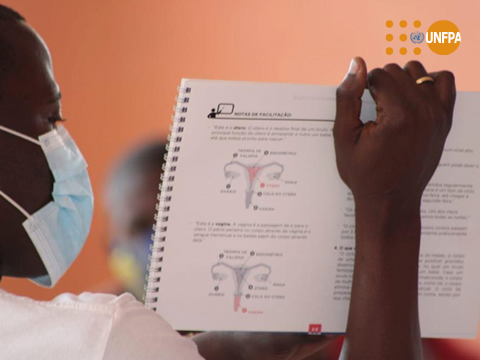
This silence also contributes to a lack of knowledge about sexual and reproductive health in general. Angola has the second-highest teen pregnancy rate in the Region with 163 out of every 1000 between 15 and 19 years old having already experienced a pregnancy. At the current rate of growth of 3.2% per year, the Angolan population, which is currently estimated at 33 million inhabitants, will have reached 45 million in 2030, more than double in 2050 and triple in 2063.
Silence has serious consequences. Melania Caiva refers to a survey by Mwana Pwo on early pregnancy in Lunda Sul, “in which many girls precisely indicated lack of information as the cause of pregnancy”. The work now carried out by UNPFA and the local association “will help them to eliminate these limitations”, she believes. “The most satisfying thing about sharing lessons about the menstrual cycle and family planning is watching the girls smile when they receive materials, such as underwear and reusable pads”, testifies the activist.
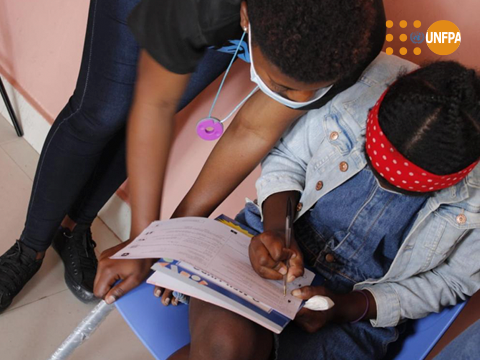
On the other hand, the COVID 19 pandemic has made clear the need for sustainable products and systems when, more than ever, supply chains are disrupted. The use by teenagers of washable and reusable products is even more relevant, as they are less dependent on supply chains.
UNFPA Angola and its (Inter)national Partners have been implementing a Menstrual Health Management initiative since 2020, with the goal for 2021 to cover 7 of the 18 Provinces. The initiative foresees, through educational workshops and the distribution of materials for the management of Menstrual Health and Hygiene, reaching a total of 6000 adolescents, girls and boys, with information on sexual and reproductive health, management of the menstrual cycle and the distribution of hygiene products reusable menstrual period for girls and boys, to improve their education and attitudes on menstruation and reproduction.

